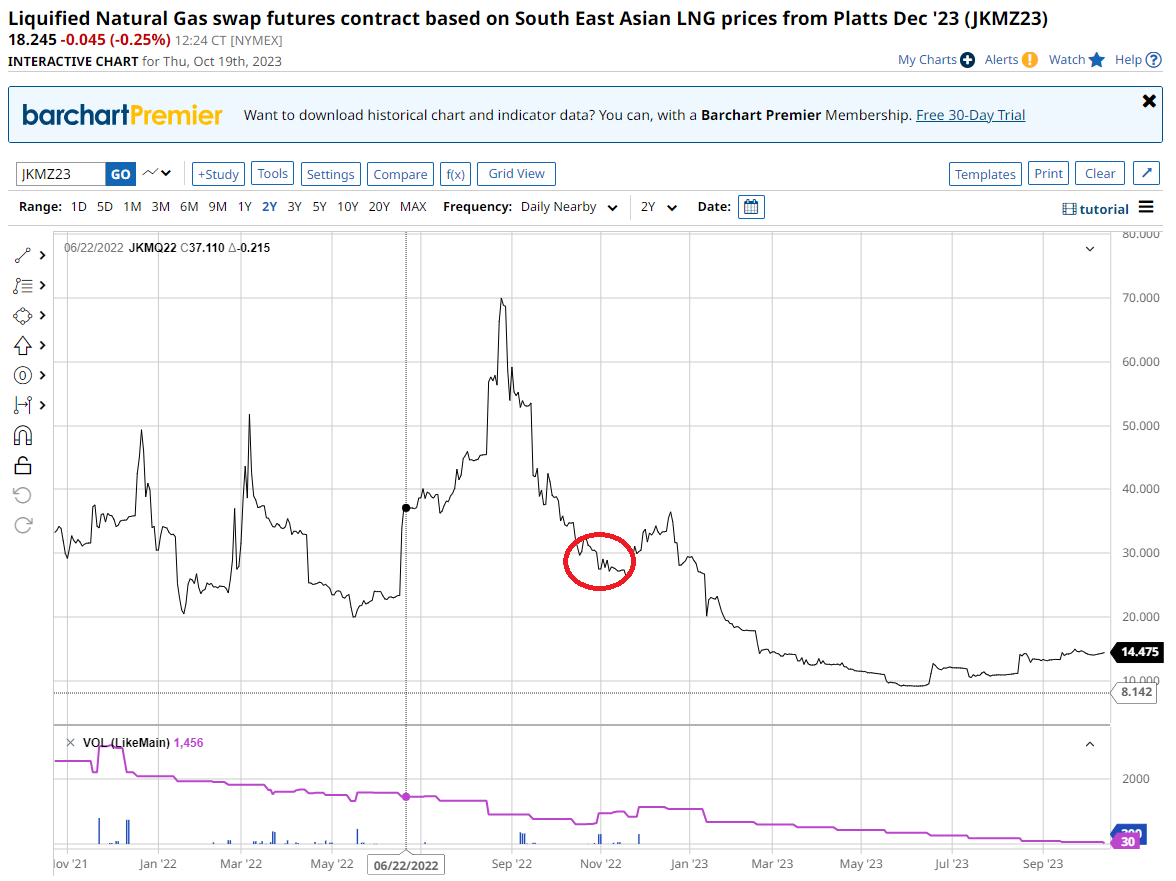This is sick in public policy terms:
Canadian private equity firm Brookfield and its partner EIG are understood to be in the process of putting together a higher proposal to buy Origin Energy.
It comes after an earnings upgrade from the $16bn energy retailer and producer amid soaring energy prices and the release of an independent expert report.
It also comes after some shareholders have been lobbying for a price bump on the back of the company’s strong performance and outlook since the offer first landed.
Rising energy prices? I assume that is a joke. Asian gas prices were double those of today when the bid landed. On the whole, gas prices have undershot most projections since then:

Likewise, Aussie gas prices.
The only changed component of the deal is that ORG’s Eraring coal power station will not shut as planned. This is because there is insufficient gas-fired power to act as the firming source for renewables.
Eraring is entirely inappropriate for the job because it cannot turn on and off fast enough to do despatchable power.
But, the NSW government doesn’t care. All it is worried about is being blamed for blackouts. So, it is going to subsidise Eraring to stay open while it makes losses.
This self-evidently stupid use of coal to support the end of coal is made all the more ridiculous by the ACCC’s failure to force the divestiture of Eraring to pass the ORG acquisition.
That is what the bleating for a higher bid is about—pricing the pending public subsidy that will prevent climate change action while costing taxpayers a bomb.
It’s only the latest atrocity by a gas cartel that does whatever it wants to the Australian public.

